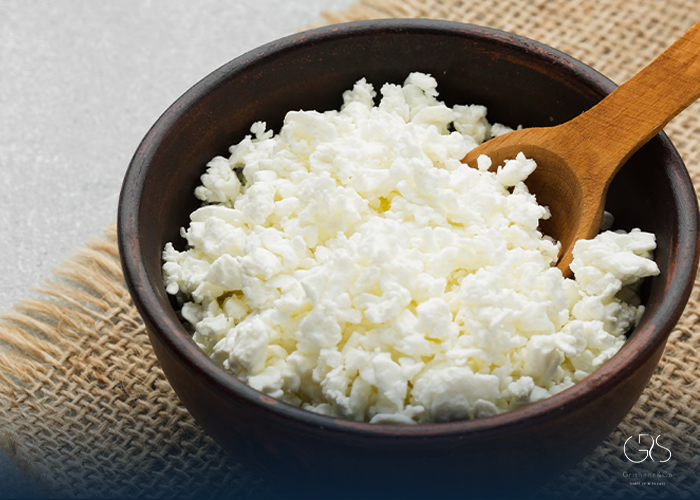Cottage cheese has long been a staple in many diets as a source of protein and calcium. But is it truly good for you? In this article, we will explore the nutritional benefits and potential drawbacks of cottage cheese, incorporating relevant statistics and diverse perspectives to provide a well-rounded understanding of its impact on health.
The Nutritional Profile of Cottage Cheese
Cottage cheese is highly regarded for its high protein content, which makes it a popular choice for individuals looking to increase their protein intake. According to the USDA National Nutrient Database, a single cup of 2% fat cottage cheese contains approximately 27 grams of protein, making it a significant source of this essential macronutrient.
In addition to its protein content, cottage cheese is also rich in calcium, with the same cup providing roughly 138 milligrams of this vital mineral. Calcium plays a crucial role in supporting bone health and overall bodily function, making cottage cheese a noteworthy addition to a balanced diet.

The Benefits of Cottage Cheese
The high protein content of cottage cheese makes it a valuable component in muscle repair and growth, especially for individuals engaged in regular physical activity or those seeking to maintain muscle mass as they age. Furthermore, the presence of casein, a slow-digesting protein, in cottage cheese has been linked to improved muscle recovery and function.
The calcium content in cottage cheese also contributes to its health benefits, as it supports bone density and strength. Additionally, cottage cheese contains essential nutrients such as phosphorus, B vitamins, and selenium, all of which are important for maintaining overall health and well-being.

Diverse Perspectives on Cottage Cheese
While cottage cheese offers notable nutritional benefits, it is essential to consider diverse perspectives on its consumption. Some critics argue that cottage cheese, particularly full-fat varieties, can be high in saturated fat and sodium, which may be detrimental to cardiovascular health when consumed in excess.
Furthermore, individuals with lactose intolerance or dairy allergies may need to exercise caution when consuming cottage cheese, as it could potentially trigger adverse reactions. It is crucial to acknowledge and accommodate these diverse perspectives when assessing the overall impact of cottage cheese on health.
Statistics and Research Findings
Research from the European Journal of Clinical Nutrition has indicated that dairy consumption, which includes cottage cheese, may be associated with a reduced risk of metabolic syndrome. The study found that individuals who consumed higher amounts of dairy products had a lower prevalence of metabolic syndrome, a cluster of conditions that increases the risk of heart disease, stroke, and type 2 diabetes.
On the other hand, a study published in the American Journal of Clinical Nutrition highlighted the potential negative effects of high-sodium dairy products, such as cottage cheese, on blood pressure levels. The research suggested that reducing sodium intake from dairy products, including cottage cheese, could have a beneficial impact on blood pressure management.
Conclusion
In conclusion, the debate on whether cottage cheese is good for you is multifaceted. Its high protein and calcium content present undeniable nutritional benefits. However, the potential drawbacks, such as high levels of saturated fat and sodium, as well as considerations for lactose intolerance and allergies, warrant careful consideration.
To fully assess the impact of cottage cheese on health, it is crucial to approach the topic from diverse perspectives and consider the findings of relevant studies. Ultimately, moderation and individual context are key factors in determining the place of cottage cheese within a healthy and balanced diet.
Sources
- healthline, Why Cottage Cheese Is Super Healthy and Nutritious
- medicalnewstoday, Is cottage cheese good for you?










